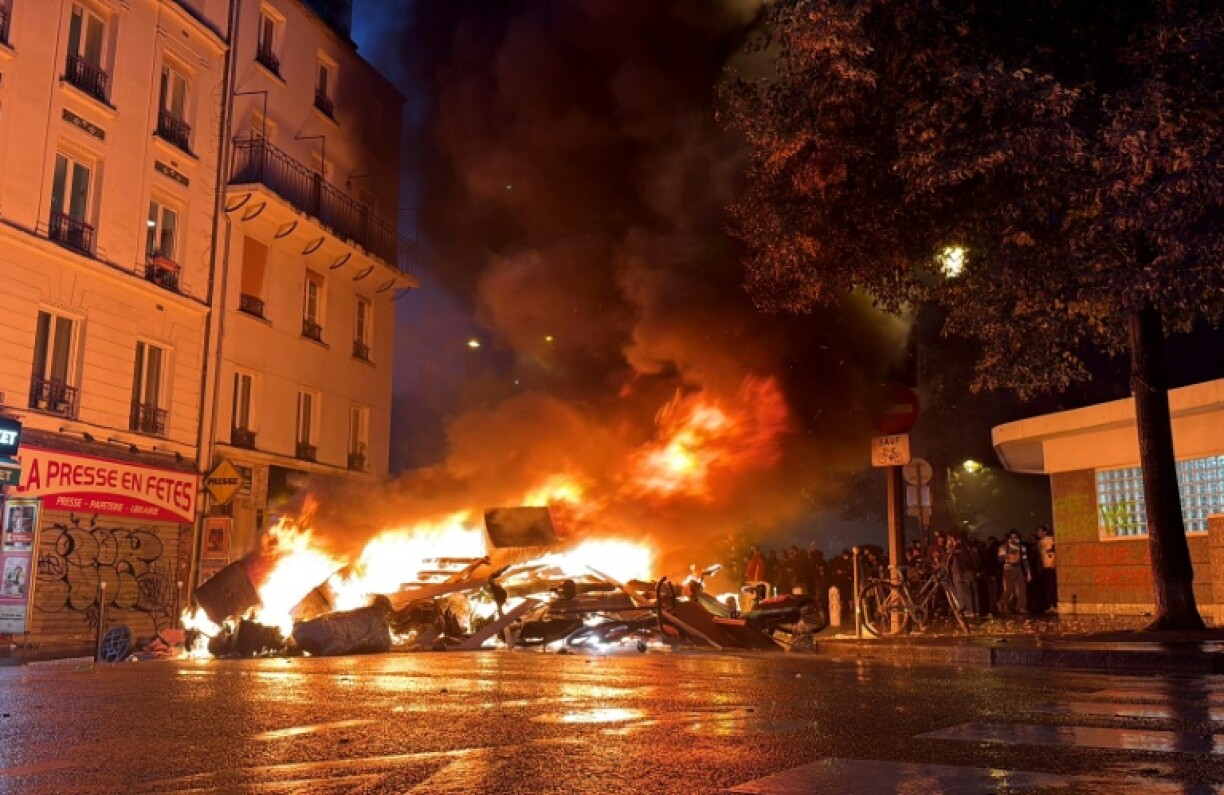
France’s new Prime Minister Sebastien Lecornu promised a “profound break” with the past on Wednesday as he faced the thorny task of trying to build a government with enough parliamentary support to pull the country out of a political crisis.
Lecornu’s first day on the job coincided with street protests across France in a show of grassroots opposition to President Emmanuel Macron, which resulted in clashes with police, as well as a fire that broke out at a restaurant in central Paris.
But the protests, which drew some 175,000 people and were policed by some 80,000 officers who made some 500 arrests, according to interior ministry figures, had an uneven impact across the country.
Major unions are planning further action for next week, with Christian Grolier, secretary general of the Force Ouvriere union’s federation of civil servants, telling AFP that “the majority of our troops preferred to reserve themselves for September 18" rather than turn out Wednesday.
The president appointed Lecornu -- a close Macron ally and defence minister for the past three years -- late on Tuesday, only 24 hours after his predecessor Francois Bayrou lost a confidence vote in parliament over his attempt to implement austerity measures to reduce France’s debt.
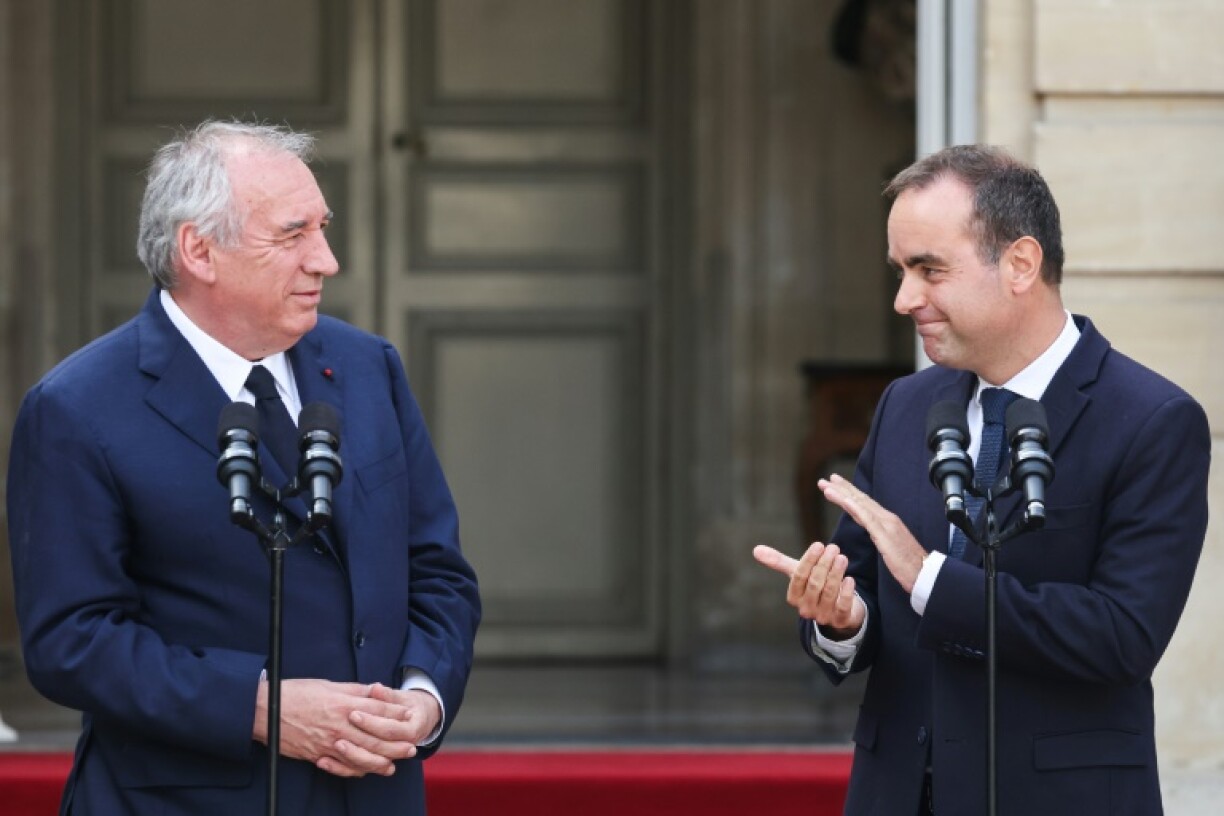
Taking over from 74-year-old Bayrou, Lecornu, 39, promised to find “more creative” ways than before to work with opposition parties to try to build a stable government.
“We will get there,” he said during a handover ceremony.
Lecornu -- the seventh prime minister since Macron took office in 2017 -- and the third inside a year -- faces the urgent challenge of giving France a budget for 2026 without suffering the same fate as Bayrou, who lasted just nine months before being ousted in a no-confidence vote.
- ‘Break or censure’ -
Lecornu said he would address the nation “in the coming days”, insisting his approach would be different from the past, and “not just in method”.
Since Macron dissolved parliament last year, successive governments have lacked a majority in the National Assembly, putting them in constant danger of being voted out.
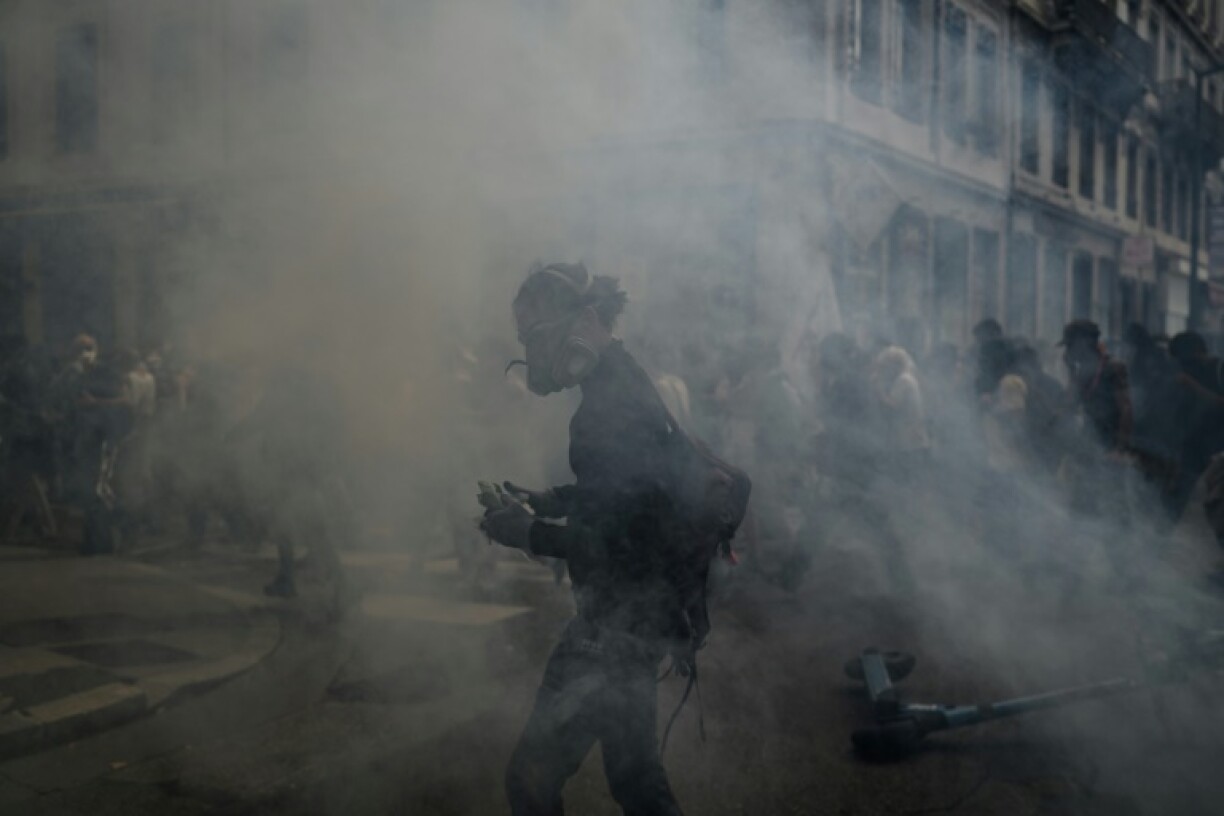
The hard-left France Unbowed (LFI) party has already announced a no-confidence motion against Lecornu in parliament, for now with no backing from other parties.
The far-right National Rally (RN) party, which senses its best ever chance to come to power and has urged Macron to call snap elections, indicated it does not want to unseat Lecornu immediately.
But its leader, Jordan Bardella, warned that the far right expects Lecornu to break with his predecessors’ policies.
“Either there will be a break, or there will be censure,” said Bardella, 29.
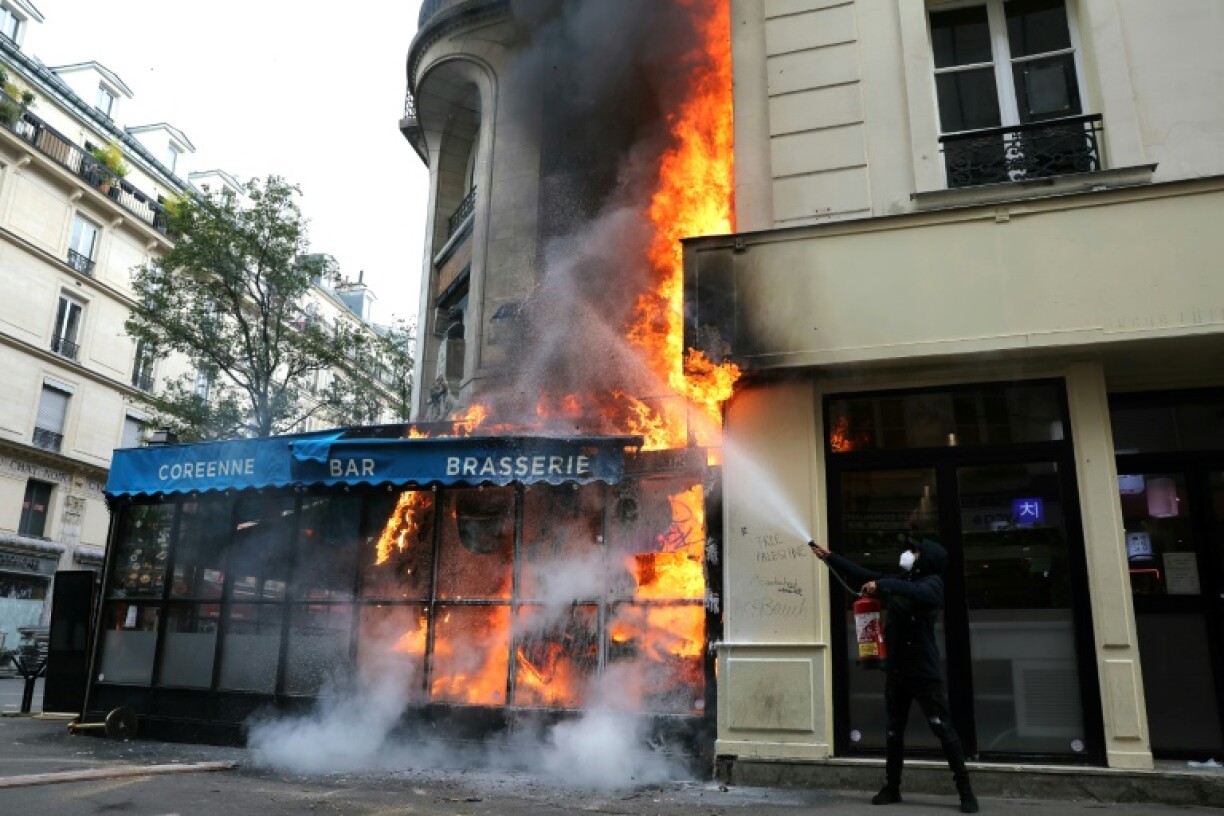
LFI leader Jean-Luc Melenchon dubbed Wednesday’s mobilisation a “success” but Interior Minister Bruno Retailleau expressed satisfaction at “the failure of those who wished to block the country.”
Demonstrators in and around Paris built barricades, blocked schools and roads and pelted police with garbage early in the day.
A restaurant caught fire in the French capital, which prosecutors said could have been caused involuntarily by police intervention.
Retailleau earlier warned demonstrators that there would be “zero tolerance” for violence, praising police and criticising protesters.
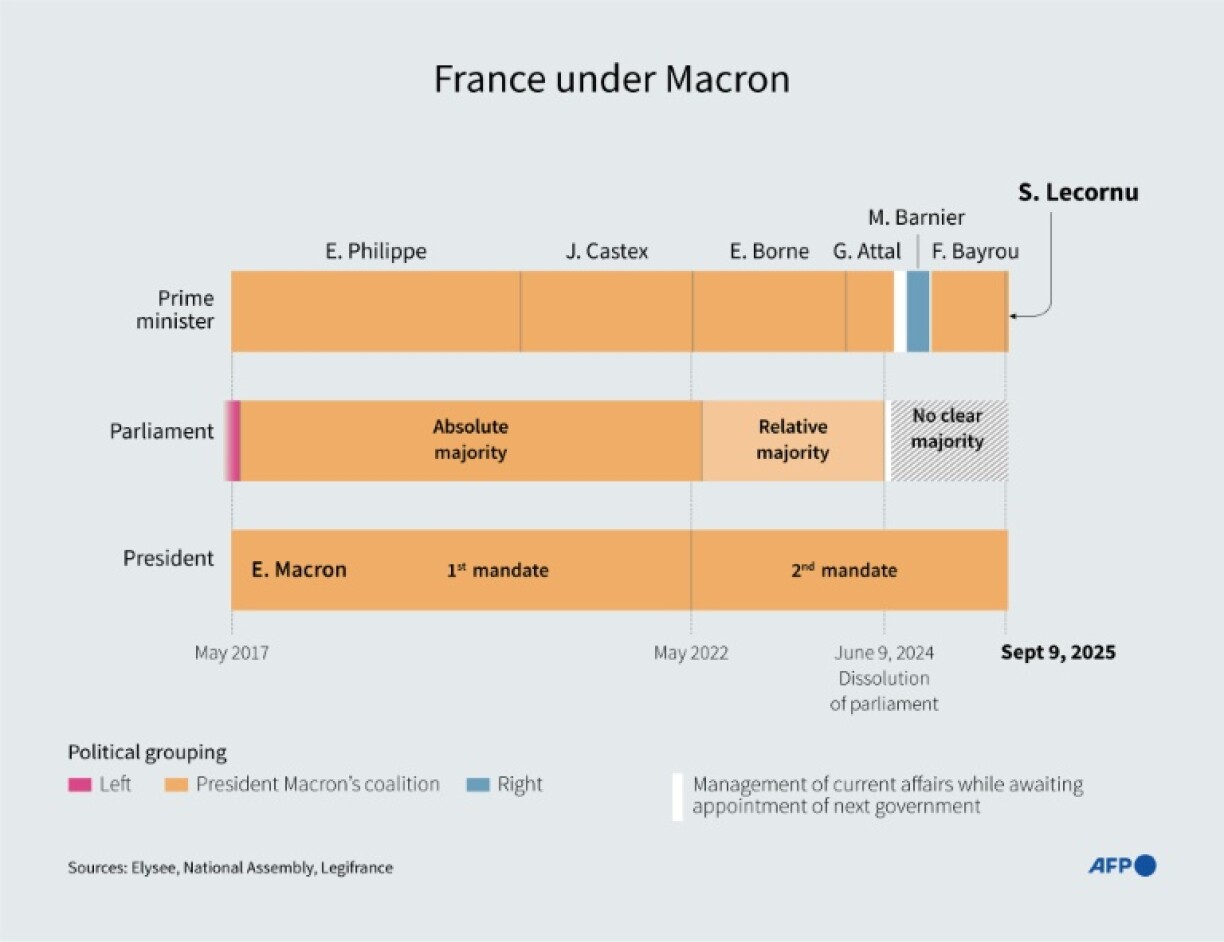
“On one side, the France of courage -- the men and women in blue,” he said, referring to police. “On the other, the France of sabotage in black.”
Despite a call by a loose left-wing coalition of organisers to “block everything”, most high-speed trains ran on schedule, and disruption to the Paris metro was minimal, operators reported.
But many schools were blocked, and protesters occupied roads and railway stations across the country.
Macron’s decision to name a close ally as prime minister was a “slap in the face”, said Florent, a protester in Lyon who gave only his first name.
“We need change,” he said.
- ‘Facebook revolutionaries’ -
The decentralised nature of the protests was reminiscent of a previous anti-government movement -- the Yellow Vests, which emerged in 2018 without clear leadership and became an early major test for Macron.
Paris police chief Laurent Nunez said he suspected the “radical left” was running the protests.
Cedric Brun, a 46-year-old auto worker and local union boss in the northern city of Valenciennes, conceded that “I thought there’d be more of us. It’s unfortunate that there are more revolutionaries on Facebook than in real life.”
Bayrou had insisted 44 billion euros ($52 billion) of spending cuts were needed to tackle France’s debt and stabilise the public finances.
Opponents accused him of trying to achieve this at the expense of wage earners and pensioners while sparing the wealthy.